Advertisement
Boston removes tents from South End encampment
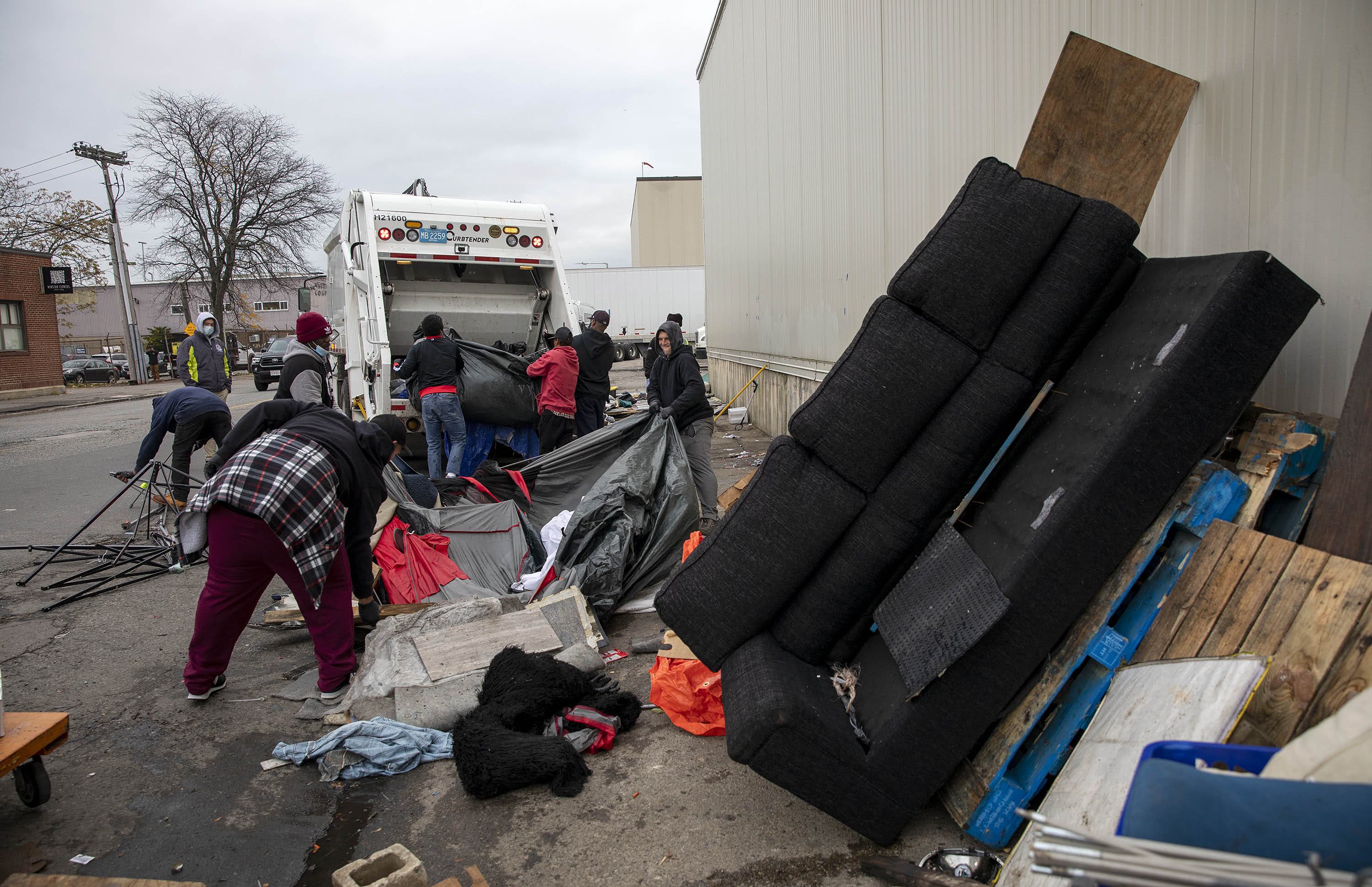
It took about three hours Thursday for Boston workers to remove about a dozen tents and debris from part of an encampment that has gotten a lot of attention the past few weeks.
Acting Boston Mayor Kim Janey has said the makeshift living space near the intersection of Massachusetts Avenue and Melnea Cass Boulevard is a public health emergency and should be removed. The city has taken out a few tents since Janey declared the area an emergency last week, but Thursday marked the largest number of tents cleared.
Workers will offer people space in a shelter before removing their tent, Janey said, assuring anyone displaced would have a place to sleep, if they so choose.
"We have taken a public health approach to this that respects that there are people, that this isn't about tents, this is about people," Janey told WBUR. "We want to make sure that our approach is one that respects people as individuals, human beings, that gives people proper notice and that we recognize that the tents and encampments are not safe and are making things worse in terms of public health."
Tents, pallets, tarps, shopping carts, blankets, clothing — even a sofa: Workers on Thursday tossed items from the encampment into the back of a city garbage truck parked on Southampton Street. Others were there to pick up discarded syringes in the debris and dispose of them in appropriate containers
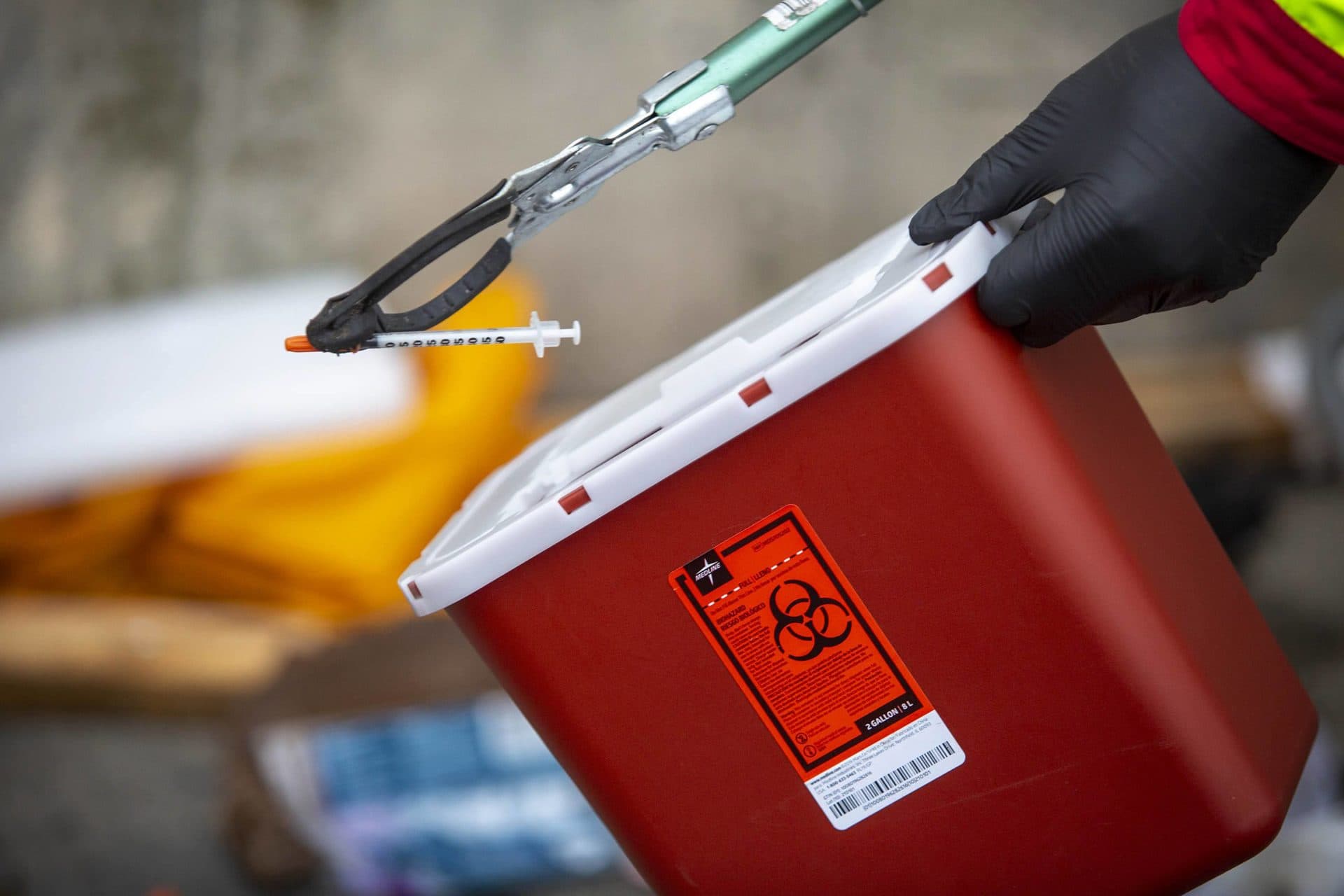
"If you see needles, just call me over and I'll grab them. Just be careful," one worker yelled to more than a dozen others clearing the area.
While the area was being cleared, some of those who were living there went through the debris looking for lost belongings.
Ronald Geddes, 53, has been living in the area for months. Geddes said he had already moved some of his belongings to another area when he heard that the city would remove tents at Southampton Street and Theodore Glynn Way, where he was camped. Geddes said city workers did offer him a bed at a nearby shelter, but he refused.
"I said I ain't gonna do it," Geddes said. "Is the city just going to keep doing this? Or are they going to make a reasonable offer? I don't want to share a shower and bathroom with somebody, and a kitchen. And that's all I can afford right now — a room — and I don't want to do it. I'd rather live in a tent."
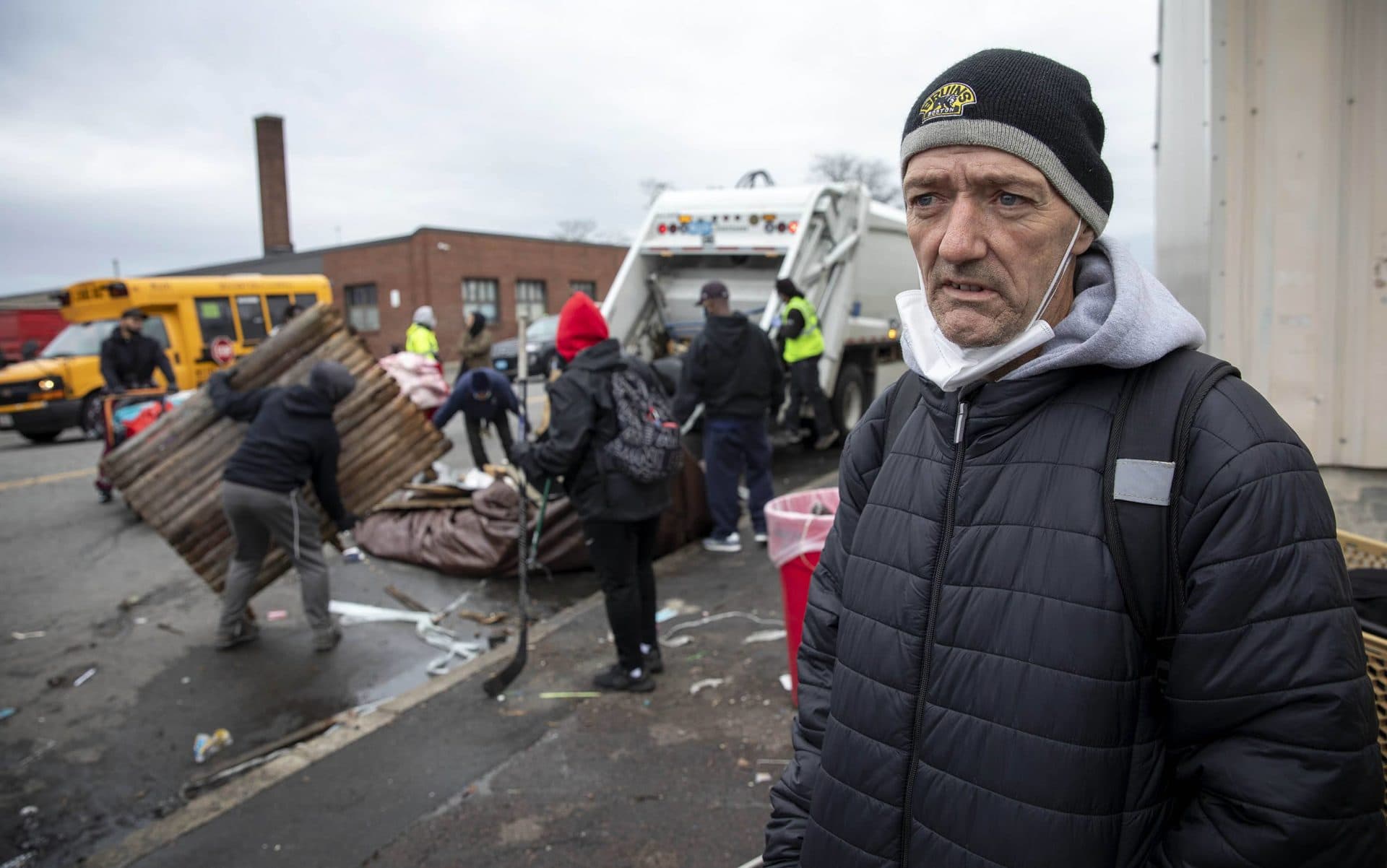
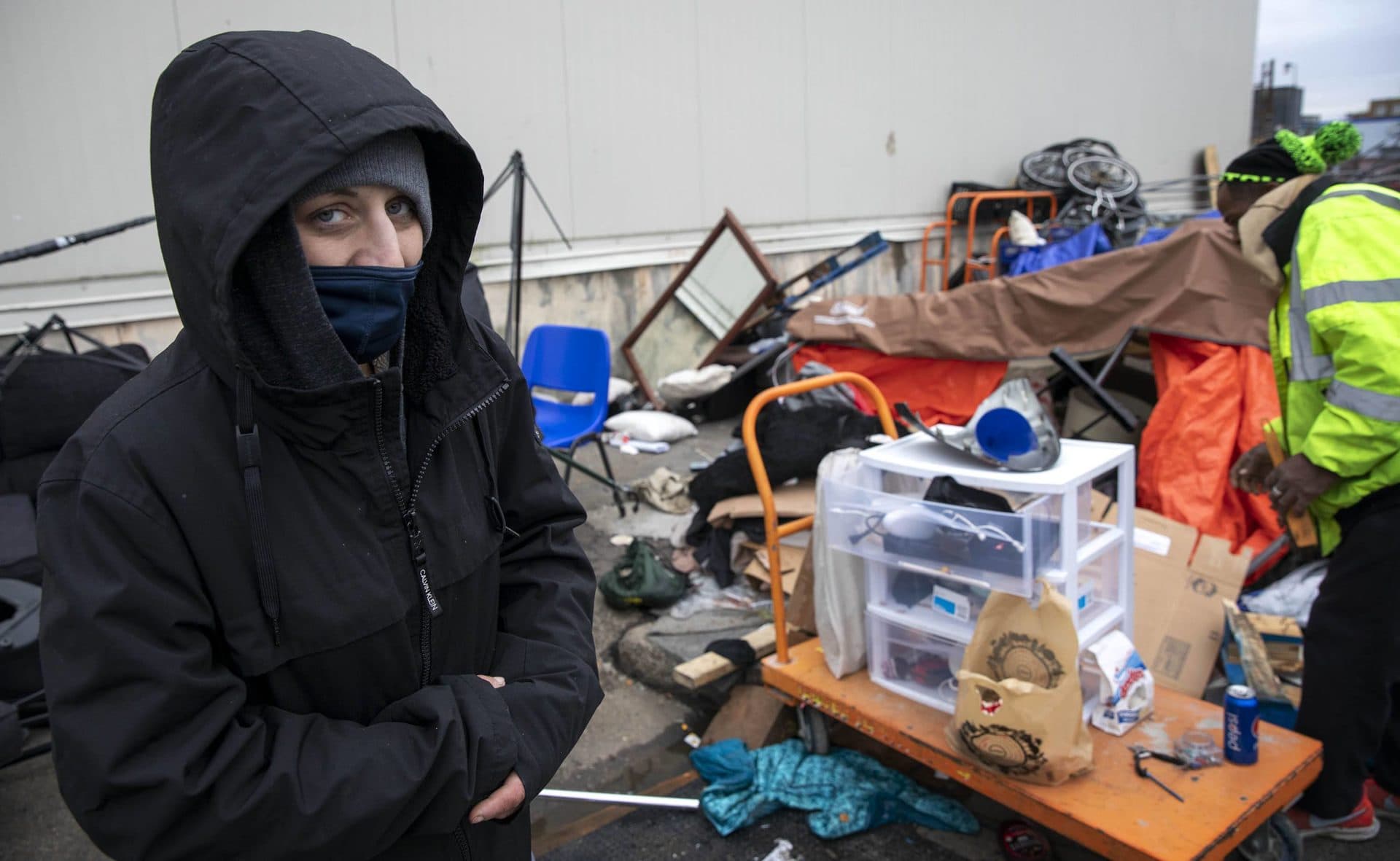
Samantha Kardas, 31, was also picking through the remnants of the encampment where she's lived for about three months. She said she connected with city workers about housing options but liked living in the encampment.
"We had a good situation here. We kept it clean, we kept it orderly, no arguments," Kardas said. "Honestly most of the mess here is because of the storm."
This week's storm caused the city to delay the removals until Thursday, although they were scheduled to take place earlier in the week, according to a statement from acting mayor Janey's office. The statement said the tents were moved as part of regular cleanups for scheduled building maintenance, and the city is still developing procedures by which to clear all the tents.
Mario Chaparro, a program director with the Boston Public Health Commission, oversaw Thursday's removal effort and said they're trying to help people get off the streets safely before winter. He said three people agreed to go to shelters or seek services.
Advertisement
"We're pretty much trying to get as many clients into the shelter in the treatment beds. Wherever, you know, pretty much they want to go, that they need to be, which we're trying to support that and get them, you know, in a safe place," Chaparro said.
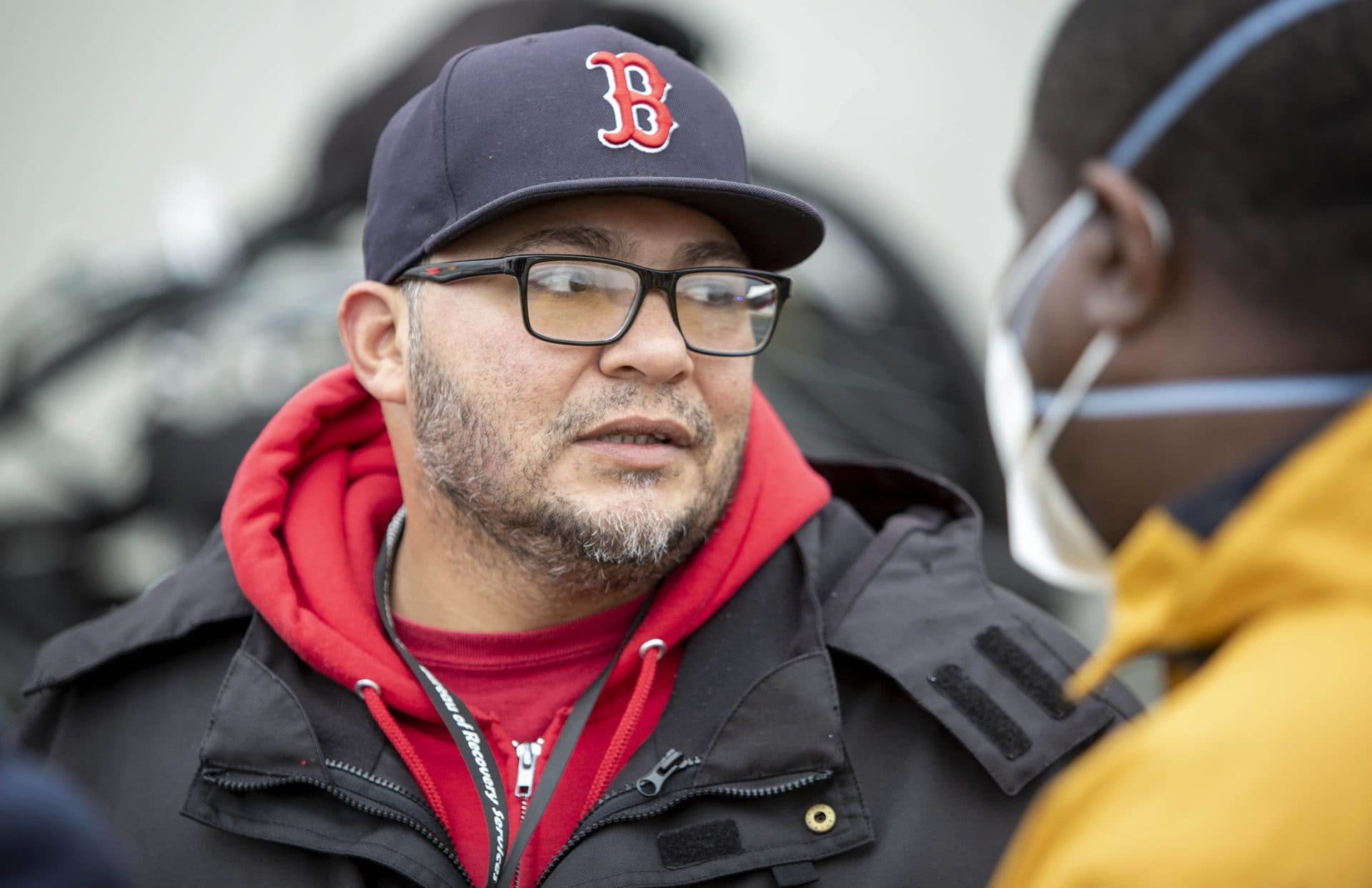
But Chaparro and others worry whether there are enough beds to take in those living in the estimated 150 tents lining the streets. They say housing should be prioritized by the city and the state.
Cassie Hurd, with the Material Aid and Advocacy Program, was observing the removals along with members of the National Lawyers Guild. Hurd said people often won't go to the area shelters because they're only a night-to-night placement, can't go with a partner or have been previously banned.
"There are all sorts of reasons why shelters don't work or aren't available," Hurd said. "People may not be able to go back. So unless there is something new created that meets people's needs — ideally housing immediately — then it's a false choice."
"I think that they're hoping that I do something wrong so they can arrest me and get me off the streets and that's not going to happen."
Ron Geddes
Hurd pointed out that 10 Southampton Street shelter residents were helping to clear the tents. She questioned why the residents were doing much of the cleanup. Sue Sullivan, with the Newmarket Business Association, which represents businesses in the area, said she paid the residents $40 each to help clear the tents as part of a partnership with the city.
"I feel so passionately that these people should not be in these tents," Sullivan said. "The depravity that's happening, I can't be party to. People are being harmed and businesses can't operate here. And so if I can make change, I will."
But Geddes, whose tent was removed, doesn't think that there will be much change. He says he's just going to put up another tent on a different street.
"I'm not asking for anything other than affordable housing. That's it," Geddes said. "I can't afford to live where I grew up. I think that they're hoping that I do something wrong so they can arrest me and get me off the streets and that's not going to happen."
Janey has said that those who refuse to leave could be charged with disorderly conduct. Suffolk County Sheriff Steve Tompkins is setting up a court session and treatment facility at his nearby jail to take people from the encampment who have outstanding criminal warrants. That court could be operating by next week, when more removals are expected.
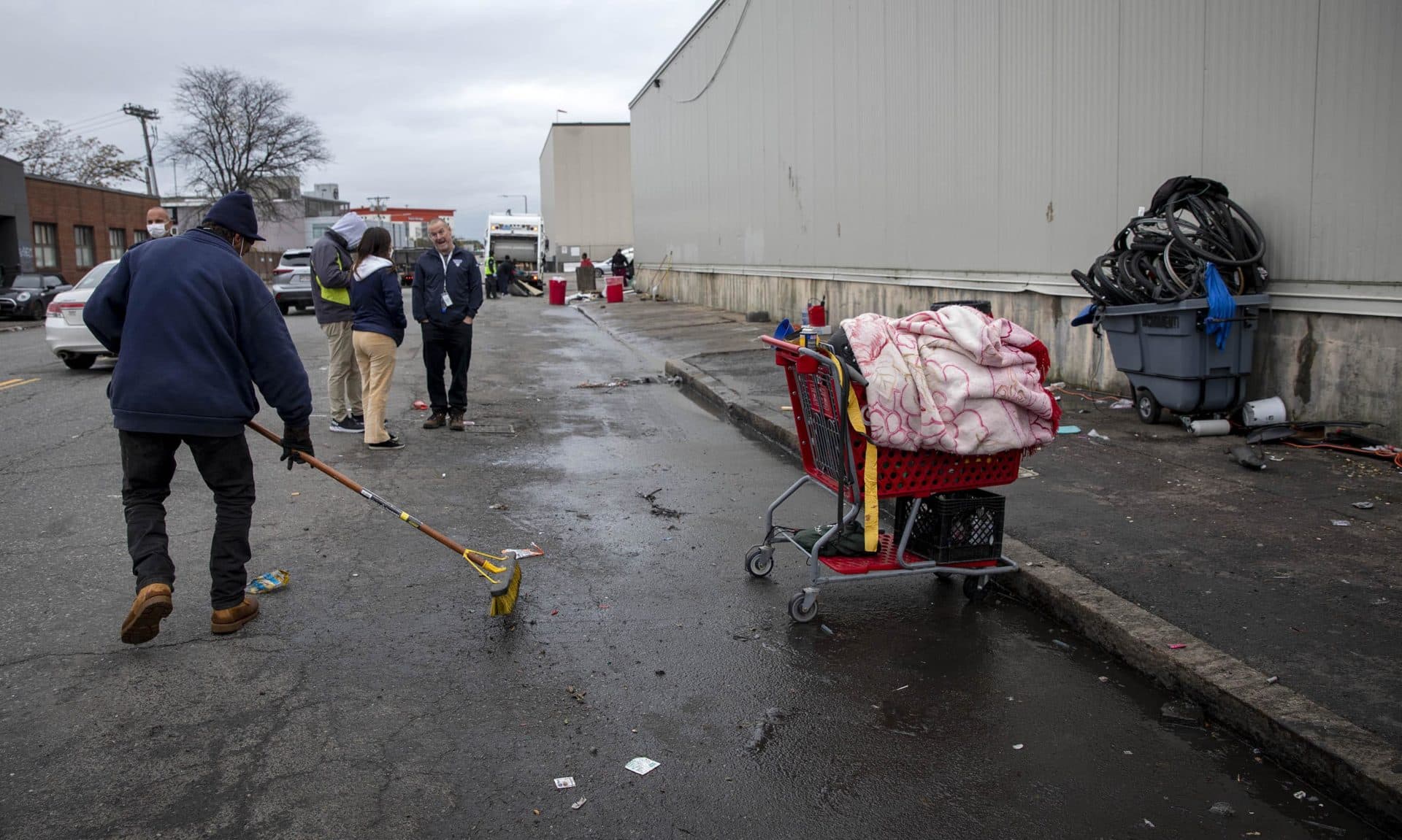
Editor's note: This story has been updated to clarify comments from Cassie Hurd of the Material Aid and Advocacy Program.
This article was originally published on October 28, 2021.
This segment aired on October 29, 2021.
